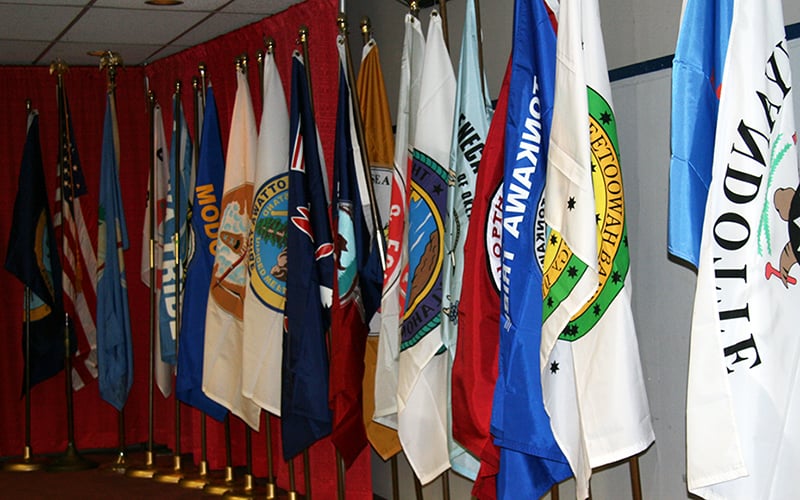
A House panel gave preliminary approval to a measure that would give Congress more control over federal recognition of Native American tribes. (Photo by Pioneer Library System/Creative Commons)
WASHINGTON – A House committee Thursday gave preliminary approval to a bill that would give Congress greater control over which Native American tribes are granted federal recognition.
The bill, co-sponsored by Rep. Paul Gosar, R-Prescott, was approved 23-13 on a largely party-line vote by the House Natural Resources Committee, despite objections from Democrats that the measure would just make the process even more cumbersome and erode tribal rights.
But supporters said the bill is aimed at streamlining what they call cumbersome Bureau of Indian Affairs guidelines for tribal recognition that were updated in 2015, and to restore control of the process to Congress, where supporters say that authority should lie.
Rep. Rob Bishop, R-Utah, said he introduced the bill last year to “bring prudence and accountability to the system” of granting federal recognition to tribes.
“If unelected political appointees can override historical analysis by their own inference to recognize a tribe, we have a serious issue,” said Bishop, the chairman of the committee, in a prepared statement Thursday.
“The Tribal Recognition Act will bring prudence and accountability to the system,” his statement said. “This bill restores our Constitution’s original intent, creating transparency and consistency while protecting the integrity of federal recognition for new and existing tribes.”
But Rep. Raul Grijalva, D-Tucson, said that under the bill, Congress would have the right to make the final decision on a tribal application and tribes would have no way of petitioning for a change in that decision.
Grijalva said the process laid out by the Interior Department in 2015 provides a nonpartisan, research-based approach for determining the validity of tribal claims. By taking that process away, the bill will actually create further delays and difficulties for tribes, he said at Thursday’s meeting.
“Worst of all, it will leave tribal recognition decisions victim to political whims,” said Grijalva, the ranking Democrat on the committee. “Science, history and fact should be the only basis for tribal recognition.”
Rep. Raul Ruiz, D-California, echoed Grijalva, arguing that putting the process of tribal recognition in the hands of a “dysfunctional hyper-partisan Congress” is misguided. He said the bill would reduce tribal self-determination, while strengthening politicians’ self interests.
But Bishop said there is a serious issue if unelected political appointees can override historical analysis to recognize a tribe on their own authority.
Committee documents said that several tribes had spoken in favor of the change in previous hearings on the bill, but that the National Congress of American Indians and the Bureau of Indian Affairs had both testified against it.
Neither the BIA nor NCAI responded to requests for comment Thursday. But in previous written testimony on the bill, Assistant Interior Sectetary for Indian Affairs Kevin Washburn said the BIA had significant concern that the bill “casts doubt on the status of tribes that have already been recognized by the federal government.”
“The bill seems to embrace such misguided thinking and places tribes at risk for litigation as to their lawful recognition,” Washburn said in his testimony. “The Administration strongly opposes legislation that purports to terminate or call into question the status of any of the existing federally recognized tribes.”